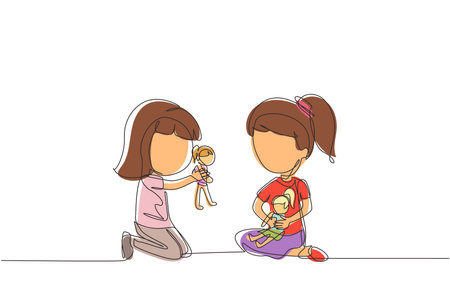Introduction to Child Benefit and Universal Credit
Understanding the UKs welfare system is essential for families aiming to make informed decisions about their household finances. Two of the most significant benefits available are Child Benefit and Universal Credit, both of which provide vital support but serve different purposes and eligibility groups. In this article, we will explore these two benefits, clarify who they are for, and discuss why it is crucial for families across the UK to understand how each can support their wellbeing and financial stability.
Overview of Child Benefit and Universal Credit
Child Benefit is a regular payment from the government to help with the cost of raising children. It’s available to most parents or guardians responsible for a child under 16 (or under 20 if they stay in approved education or training). Universal Credit, on the other hand, is a means-tested benefit designed to support people on low incomes or out of work. It combines several previous benefits into one monthly payment and considers your entire households income and circumstances.
Who Are These Benefits For?
| Benefit | Main Recipients | Key Eligibility Criteria |
|---|---|---|
| Child Benefit | Parents/Guardians of children under 16 (or under 20 in education) | Residency in the UK; Responsible for a child; No income cap but High Income Child Benefit Charge applies above £50,000/year |
| Universal Credit | Individuals/families on low income or out of work | Low household income; Limited savings (<£16,000); Residency in the UK; Aged 18+ (some exceptions for 16-17 year olds) |
Why Understanding These Benefits Matters
For families in the UK, knowing the differences between Child Benefit and Universal Credit can help maximise financial support while avoiding common pitfalls such as missing out on entitlements or facing unexpected charges. This understanding allows households to better plan their budgets, access additional help if needed, and ensure that children’s health and wellbeing are prioritised with adequate resources for nutrition, education, and daily living costs.
2. Eligibility Criteria and Application Process
Understanding the eligibility requirements and application processes for both Child Benefit and Universal Credit is essential for UK residents aiming to maximise their entitlements. Below, we break down the key criteria and steps involved for each scheme, highlighting British-specific considerations.
| Child Benefit | Universal Credit | |
|---|---|---|
| Who Can Apply? | Any individual responsible for a child under 16 (or under 20 if in approved education/training) living in the UK. | People on low income or out of work, aged 18 or over, below State Pension age, with savings below £16,000, residing in the UK. |
| Residency Status | Must be ordinarily resident in the UK; some exceptions for EEA/Swiss nationals post-Brexit. | Must live in the UK; subject to habitual residence test. |
| Income Thresholds | No upper income limit, but High Income Child Benefit Charge applies if you or your partner earn over £50,000 per year. | Means-tested; amount reduces as your income and savings increase. |
| Main Documents Needed | Child’s birth/adoption certificate, National Insurance number, proof of address. | National Insurance number, ID documents, details of income/savings/rent/childcare costs. |
| How to Apply | Apply online via Gov.uk or by post using form CH2. Backdating possible up to 3 months. | Apply online via Gov.uk; initial appointment at Jobcentre Plus required for most new claims. |
| Processing Time | Usually within 12 weeks from application date. | Around 5 weeks after claim submission (includes first assessment period). |
Step-by-Step Guide: Applying for Child Benefit
- Gather necessary documents: Birth certificate, National Insurance number.
- Complete form: Fill in CH2 form online or by post.
- Submit application: Send via Gov.uk portal or post to Child Benefit Office.
Step-by-Step Guide: Applying for Universal Credit
- Create an account: Register on the official Universal Credit portal (Gov.uk).
- Provide information: Enter personal details, financial situation, housing and family circumstances.
- ID verification and interview: Attend a Jobcentre Plus appointment if required.
If you meet the criteria for both schemes, you can apply for them simultaneously. However, remember that receiving Child Benefit may impact the amount of Universal Credit you are awarded due to overlapping support calculations. Be sure to update your Universal Credit journal with any changes in your Child Benefit status to avoid overpayments or sanctions. Understanding these requirements ensures smoother applications and helps you make the most of available financial support in the UK context.

3. How Payments Work: Amounts and Frequency
Understanding how much support you can receive—and when—plays a crucial role in managing your household finances. Here, we break down the payment amounts, frequency, and important UK-specific considerations for both Child Benefit and Universal Credit.
Child Benefit
Child Benefit is a tax-free payment designed to help with the cost of raising children. The amount you receive depends on how many children you have. As of 2024, these are the standard weekly rates:
| Number of Children | Weekly Payment (per child) |
|---|---|
| First Child | £24.00 |
| Each Additional Child | £15.90 |
Payments are typically made every four weeks, directly into your bank account. However, single parents or those on certain benefits can request weekly payments instead.
Universal Credit
Universal Credit is a means-tested benefit that supports low-income households with living costs, including housing and childcare. The amount you receive varies based on your circumstances—such as income, savings, household size, and whether you have children or disabilities.
Standard Allowance (Monthly Rate for 2024/25)
| Status | Monthly Amount |
|---|---|
| Single (Under 25) | £311.68 |
| Single (25 or over) | £393.45 |
| Couple (Both under 25) | £489.23 |
| Couple (One or both 25+) | £617.60 |
You may also qualify for additional elements if you have children, disabilities, or housing costs. Universal Credit is paid monthly in arrears into your bank account, which reflects the UK’s move towards monthly budgeting.
Key Considerations Unique to the UK
- If either parent earns over £50,000 annually, Child Benefit may be subject to the High Income Child Benefit Charge (HICBC), reducing its financial advantage.
- If you’re receiving both benefits, Universal Credit calculations will consider any Child Benefit payments as part of your overall income but do not reduce your entitlement pound-for-pound.
- If you’re struggling with monthly budgeting under Universal Credit, you can request an Alternative Payment Arrangement for more frequent payments.
- Banks in the UK are set up for direct benefit payments; ensure your account details are up-to-date to avoid delays.
By understanding payment structures and planning around them, UK families can better manage their finances and maximise support from both benefits.
4. Key Differences Between Child Benefit and Universal Credit
Understanding the differences between Child Benefit and Universal Credit is essential for families navigating the UK benefits system. While both support families with children, they serve distinct purposes, have separate eligibility rules, and interact differently with other government schemes. The table below provides a clear comparison of their key features:
| Aspect | Child Benefit | Universal Credit |
|---|---|---|
| Purpose | Financial support per child to help with general living costs | Means-tested benefit to help with living costs if you’re on a low income or out of work |
| Eligibility | Available to most parents or guardians responsible for a child under 16 (or under 20 in approved education/training) | Based on household income, savings, and circumstances; must be aged 18+ (with some exceptions) and reside in the UK |
| Payment Amount | Fixed weekly rate per child (higher for first child) | Varies depending on household income, rent, childcare costs, and number of children/dependants |
| Affected by Income? | No reduction until you or your partner earn over £50,000/year (High Income Child Benefit Charge applies after this threshold) | Amount reduces as earnings increase; designed as a sliding scale to encourage work |
| Taxable? | No (but may need to pay tax via the High Income Child Benefit Charge) | No – Universal Credit is not taxable income |
| Impact on Other Benefits | No impact on other means-tested benefits; can be claimed alongside them | Replaces several legacy benefits (e.g., Tax Credits, Housing Benefit); affects entitlement to these benefits if you move to Universal Credit |
| Interaction with Government Support | Adds to overall household income; can be combined with other support such as free school meals or Healthy Start vouchers | Main benefit for working-age adults; includes elements for housing, childcare, disability, and carers within one payment. May affect eligibility for local council schemes or other support. |
| How to Claim | Apply online or by post through HMRC; usually only one person per household can claim for each child | Apply online via GOV.UK; covers multiple needs in a single monthly payment to one person in the household |
Summary: While Child Benefit provides universal support for families with children regardless of income (up to a high-income threshold), Universal Credit is designed as a comprehensive safety net tailored to those on lower incomes. Both can be received simultaneously, but understanding how they interact with each other and additional government support can help families make informed decisions about their finances.
5. Maximising Your Benefits: Practical Tips for UK Families
Making the most of both Child Benefit and Universal Credit can significantly support your family’s financial wellbeing. Here are some tailored, practical strategies designed for UK households to optimise these benefits and maintain a healthy household budget.
Understand Your Entitlements
Regularly review your eligibility for both Child Benefit and Universal Credit, as changes in income, household size, or employment status can affect your entitlement. Use the official GOV.UK benefits calculator or consult with Citizens Advice to ensure you’re claiming everything available to you.
Smart Budgeting for British Households
Effective budgeting is key to making these benefits go further. Consider the following table for a sample monthly budget plan that incorporates Child Benefit and Universal Credit payments:
| Expense Category | Suggested % of Monthly Income |
|---|---|
| Housing (rent/mortgage) | 30-35% |
| Utilities & Council Tax | 10-15% |
| Groceries & Household Essentials | 20-25% |
| Transport | 5-10% |
| Savings & Emergency Fund | 5-10% |
| Childcare & Activities | 10-15% |
Wellbeing Tips for Families
- Take advantage of free or discounted activities in your local community—libraries, museums, and leisure centres often offer family-friendly programmes.
- If eligible, apply for Healthy Start vouchers to help with the cost of fruit, veg, milk, and vitamins for children under four.
- Plan weekly meals based on supermarket offers and seasonal produce; this supports both nutrition and cost savings.
Review and Adjust Regularly
Your family’s needs will evolve over time. Schedule quarterly reviews of your budget and benefit claims to adapt to any changes in circumstances. Staying proactive ensures you continue to maximise support while nurturing your family’s overall wellbeing.
6. Common Questions and Troubleshooting
Frequently Asked Questions About Child Benefit and Universal Credit
Navigating the UK benefits system can be confusing for families, especially when trying to understand the differences between Child Benefit and Universal Credit. Below are some of the most common questions British families ask, along with clear answers to help you make informed decisions and avoid common pitfalls.
FAQ Table: Quick Reference Guide
| Question | Child Benefit | Universal Credit |
|---|---|---|
| Can I claim both benefits at the same time? | Yes, Child Benefit is a separate entitlement. | Yes, you can receive both if eligible. |
| Does Child Benefit affect my Universal Credit payments? | No, it is not counted as income for Universal Credit calculations. | N/A |
| What if my circumstances change (e.g., new baby, job loss)? | You must report changes to HMRC immediately. | Report changes via your Universal Credit online account or Jobcentre Plus. |
| I earn over £50,000—will I lose my Child Benefit? | You may need to pay a High Income Child Benefit Charge via Self Assessment. | This does not affect your Universal Credit directly. |
| How quickly will I receive payments after applying? | Usually within 3-6 weeks from application approval. | First payment typically takes 5 weeks, but advance payments may be available in hardship cases. |
| Can non-British citizens apply? | Certain residency and immigration rules apply; check eligibility before applying. | You must have the right to reside and pass habitual residence tests. |
Troubleshooting Common Challenges
I Haven’t Received My Payment—What Should I Do?
Child Benefit: Contact the Child Benefit Office on 0300 200 3100.
Universal Credit: Use your online journal or call the Universal Credit helpline at 0800 328 5644. Ensure your bank details are up to date and check for recent correspondence about your claim status.
I Made a Mistake on My Application—How Can I Fix It?
Child Benefit: Call HMRC or update your details through your Personal Tax Account.
Universal Credit: Amend information via your online account or speak to your work coach as soon as possible.
I’m Moving Abroad—Will My Benefits Stop?
Your eligibility for both benefits depends on residency. You must inform HMRC (for Child Benefit) or DWP (for Universal Credit) before moving abroad. Payments may stop if you no longer meet residence criteria.
I Disagree With a Decision—Can I Appeal?
If you feel a decision is incorrect, both systems allow you to request a mandatory reconsideration. If still unresolved, you can appeal to an independent tribunal. Seek advice from Citizens Advice or local welfare support services for guidance.
The UK’s benefit system can seem daunting, but understanding key rules and where to get help makes it easier to access what you’re entitled to. For complex situations, don’t hesitate to consult official government resources or local advisory services for tailored support.


